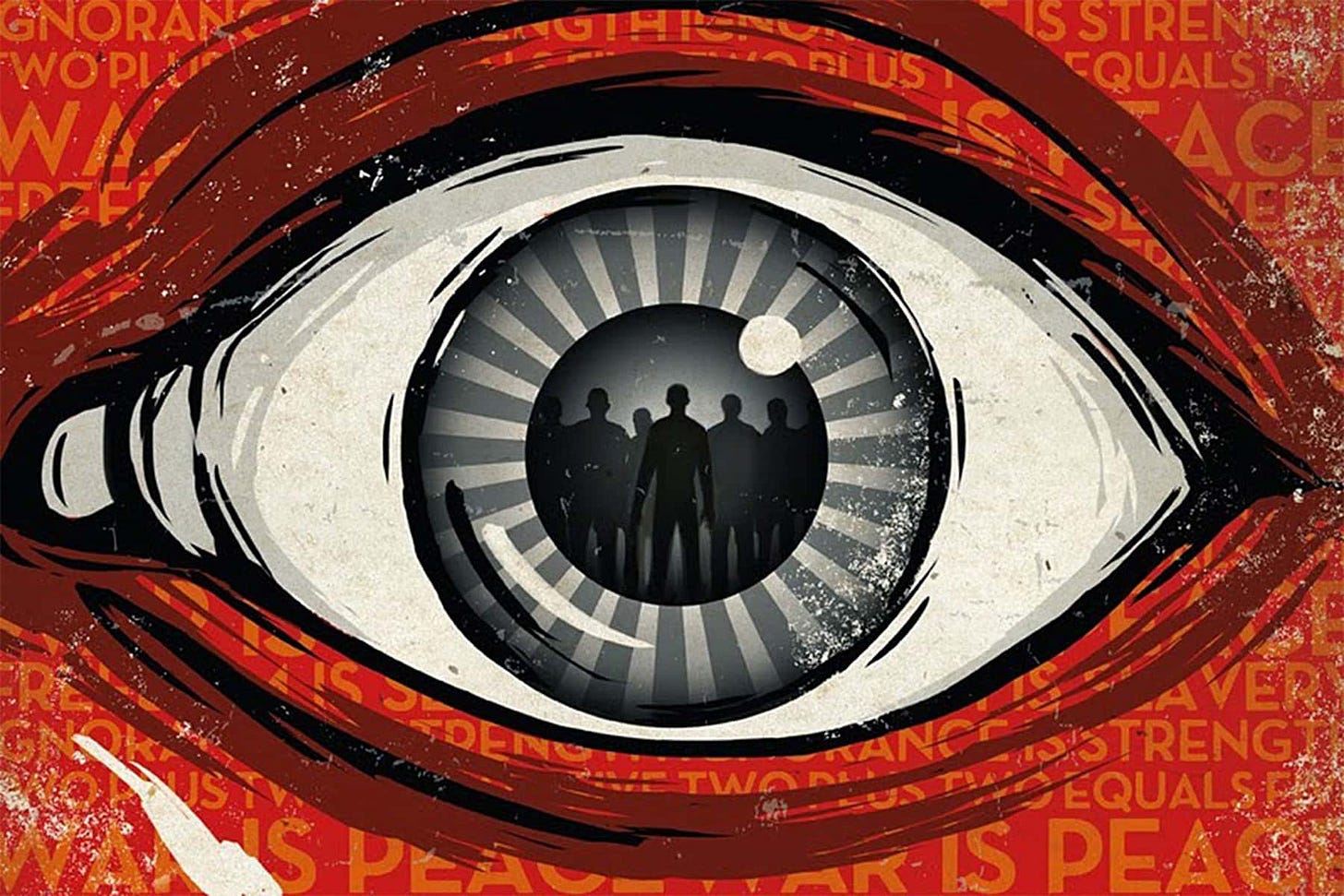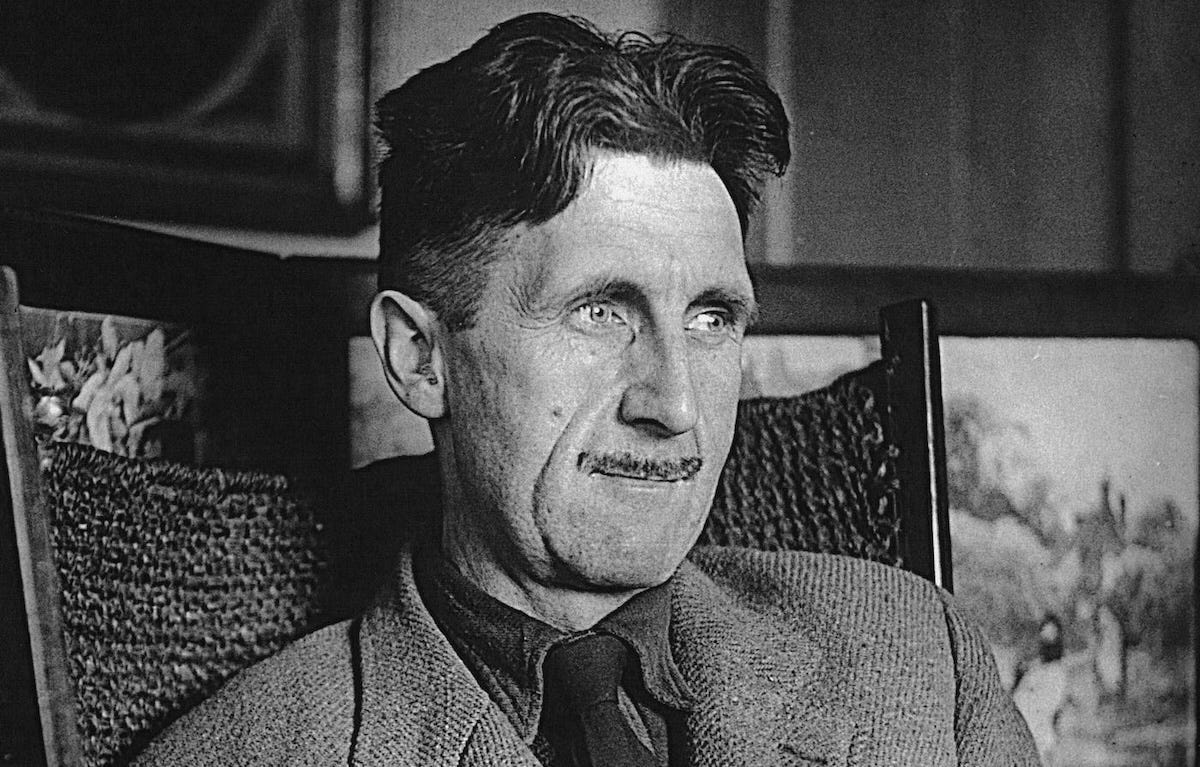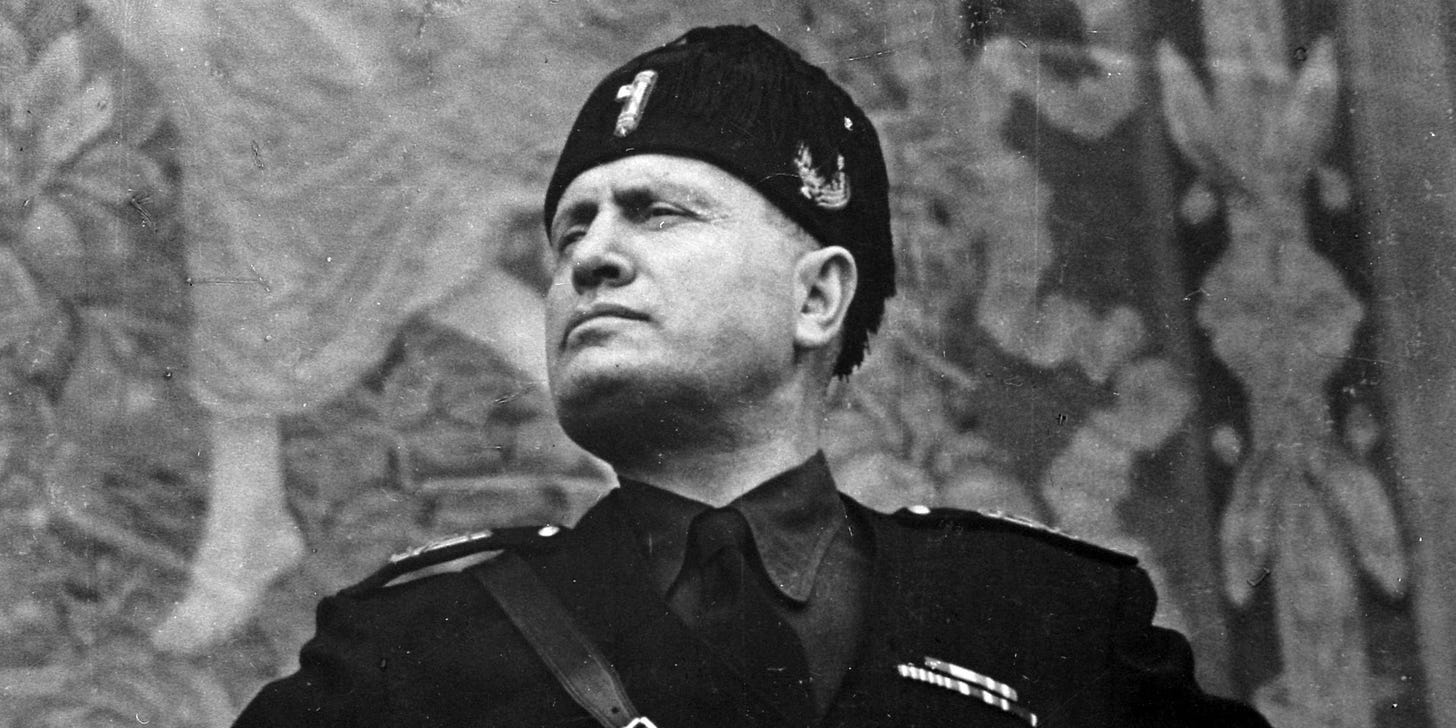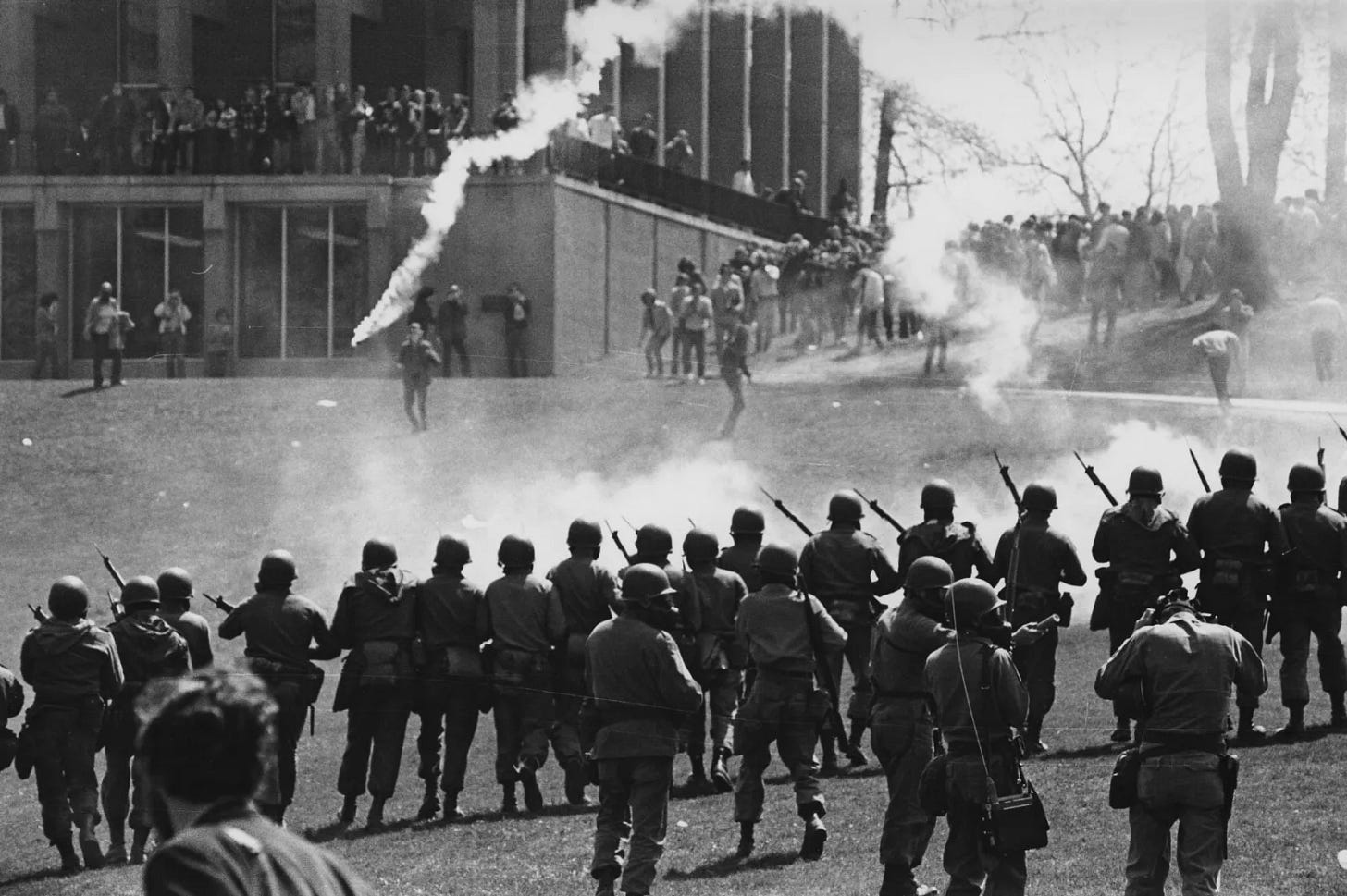Orwell and The Grave Dangers of Militarized Governance
The argument against using troops to enforce state laws is not an argument against law and order. It is an argument for the preservation of democratic standards.
The idea of the federal government deploying troops to enforce state laws (as we have recently seen in cities across the United States) is a chilling prospect that evokes George Orwell’s searing critiques of authoritarianism. And rightfully so.
In his seminal works, Orwell painted a grim picture of what happens when the machinery of the state becomes too powerful, too invasive, and too willing to use force against its own people. His insights remain profoundly relevant today, as the debate over the role of government and the use of military power within our borders continues to simmer.
At its core, the use of troops to enforce state laws represents a dangerous overreach of government authority. It blurs the line between civilian governance and military control, a line that, once crossed, is difficult to redraw.
Orwell’s 1984
Orwell understood this danger intimately. In 1984, he described a world where the state’s monopoly on power was absolute, where surveillance and force were tools to crush dissent and maintain control.
Yet while Orwell’s dystopia was fictional, it was deeply informed by the real-world rise of fascist regimes in the 20th century, regimes that used military force not to protect citizens, but to subjugate them.
Ultimately, he rightfully concluded the deployment of troops for domestic law enforcement undermines the very principles of democracy it claims to uphold.
Orwell warned of this in his essay Politics and the English Language (an essay that every writer and politico should read), where he argued that the corruption of language often precedes the corruption of power. When governments frame military enforcement as “necessary” or “protective,” they obscure the reality of what such actions entail: the erosion of civil liberties and the normalization of state violence.
Authoritarianism and The State
History offers countless examples of the dangers of militarized governance. In the 20th century, fascist regimes in Europe demonstrated how quickly governments could turn military power inward.
Benito Mussolini’s Italy, for example, used paramilitary forces like the Blackshirts to enforce state laws and suppress dissent. What began as a tool to “restore order” quickly became a mechanism for silencing political opponents, censoring the press, and dismantling democratic institutions.
Similarly, Francisco Franco’s Spain relied on military force to maintain control, using troops to crush opposition and enforce a rigid, authoritarian rule. In both cases, the use of military power to enforce domestic laws was framed as a necessity for national stability, but it ultimately led to the erosion of individual freedoms and the rise of oppressive regimes.
Even in democracies, the use of troops for domestic enforcement has proven to be a slippery slope. In the United States, the Posse Comitatus Act of 1878 was enacted to prevent the federal government from using the military to enforce domestic laws. This legislation was a direct response to the abuses of the Reconstruction era, when federal troops were used to enforce laws in the post-Civil War South.
While the intent was to protect newly freed African Americans and maintain order, the presence of troops often exacerbated tensions and fueled resentment among local populations (a history worth reading about).
The lesson was clear: the use of military force in civilian matters can deepen divisions rather than resolve them.
Kent State Shootings
More recently, the deployment of the National Guard during moments of civil unrest has reignited debates about the role of the military in domestic affairs. While the National Guard is often called upon to assist in emergencies, its use in situations like the Kent State shootings in 1970 highlights the dangers of militarized responses to civilian issues (four students were killed and nine others were injured).
The incident underscored the risks of using armed forces to enforce order, particularly in situations where tensions are high and the potential for violence is significant.
Orwell’s critiques of fascism and authoritarianism remind us that the concentration of power in the hands of the state, especially when backed by military force, is a recipe for tyranny.
The argument against using troops to enforce state laws is not an argument against law and order. It is an argument for the preservation of democratic standards, for the protection of individual freedoms, and for the recognition that the power of the state must have limits.
Consent of the Governed
In a democracy, the legitimacy of the government rests on the consent of the governed. When that government turns to troops to enforce its will, it risks losing that consent.
Orwell’s writings serve as a stark reminder that the true strength of a nation lies not in its ability to wield power, but in its commitment to justice, liberty, and the rule of law. To ignore these lessons is to risk repeating the mistakes of the past, with consequences that are as predictable as they are devastating.
The solution lies not in militarizing governance but in strengthening the institutions that uphold democracy.
Subscribe Today and Support Indie Media
Our mission is to provide a platform for Mexican Americans to be seen and heard.
You can help support us by making a monthly contribution of only $5.99.
Subscribers get access to exclusive columns and videos.
Together we can change media. To subscribe, click on the “upgrade to paid” button. Thank you for your support!






